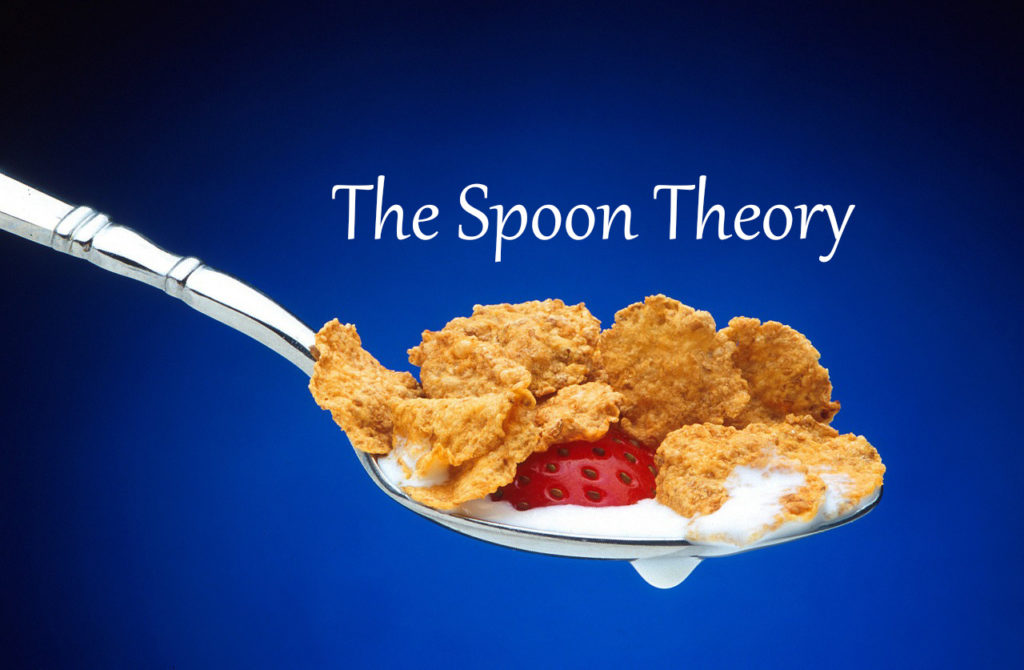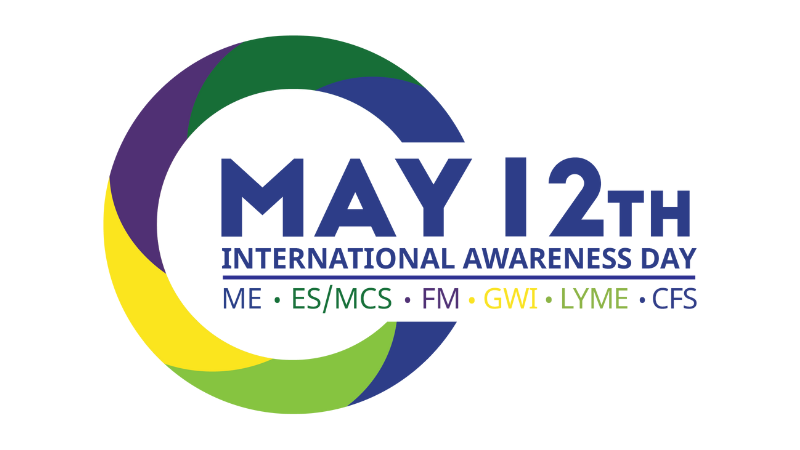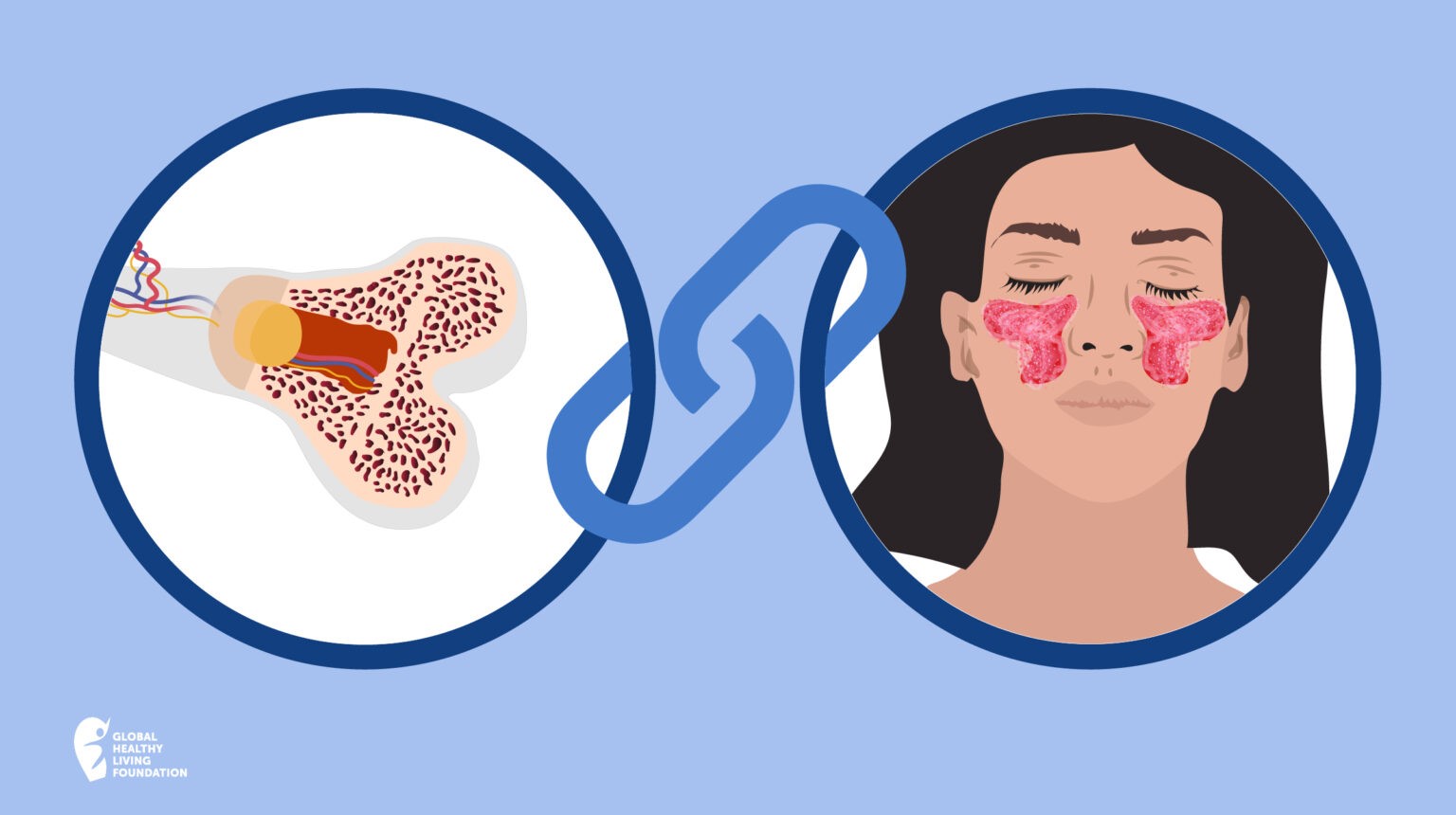

The Spoon Theory is a metaphorical story created by Christine Miserandino in 2003 to explain how lupus affects every part of her day.
The story evolved from a conversation Miserandino had with a close friend one day, while they were eating in a diner. After watching Miserandino take her medication, her friend suddenly asked what it felt like to live with lupus. Not the symptoms of lupus or the things she needed to do to manage it — her friend was aware of most of that — but what it felt like to be a person living with a chronic illness.
Miserandino wanted her friend to understand how fatigue affects her choice of activities. Every. Single. Day. She wanted a physical way to demonstrate how fatigue is far more than simply being tired or lazy. This is something most people with chronic health issues understand but few others do.
The Spoon Theory Begins
At that moment in the diner, Miserandino spotted some spoons on the tables around them, so she picked them up and asked her friend to count them and hold onto them. (Her friend had 12 spoons.) Miserandino explained that the spoons represented her daily units of energy. Healthy people usually have an unlimited supply of energy and often take it for granted. However, people with chronic conditions only have a limited supply. The supply is also variable and unpredictable. We never know how many spoons we’ll have when we wake up.
She then asked her friend to describe what she did on a typical day from morning till night. When her friend began with getting ready for work, Miserandino stopped her and explained that it took a lot of energy to get to that point. Getting out of bed might take one spoon. Having a shower might take three.
By the time her friend was ready to leave for work, she was already down to six spoons — half her energy supply for that day. By dinner time, her friend only had one spoon left. That meant she had to choose between cooking dinner or going out for it. If she cooked, she probably couldn’t clean up afterwards. If she went out, she might not have the energy to drive there and back. Hypothetically, Miserandino’s friend decided to have soup as it was easy.
Using Spoons Takes Energy
Through this exercise, her friend learned how chronic illnesses use up a lot of energy. Our bodies are so busy dealing with things like inflammation and pain that they don’t have much energy to spare for other activities. We are nearly always tired, even when we wake up, and often that turns into crippling fatigue if we use too many spoons. Therefore, we have to prioritise our activities very carefully and revise our choices throughout the day.
We can borrow a few spoons from the next day, but we will always have to pay them back somehow. With interest. We do what we can to increase our allocation of spoons through our treatment, diet and exercise choices. We learn to pace ourselves and allow our bodies extra time to rest and recharge when we can. However, we live with the stress of never being able to trust our bodies or plan ahead with certainty.
The Spoon Theory has been circulated globally through chronic illness communities since Miserandino first shared it. Many people now call themselves “spoonies” and use hashtags such as #spoonies and #spoonless on social media.
How The Spoon Theory Helped Me
When I read the Spoon Theory for the first time, I was grateful. Finally, I had a way to explain my constant fatigue to my family, friends and my healthcare team. A way to deal with comments like, “We all get tired. That’s just life”, or “You’d have more energy if you just changed your diet, exercised more or tried the latest supplement”. It helped to validate my experiences and to understand that I wasn’t alone in feeling them.
I’ve been a member of a large arthritis support group for over 10 years and a co-leader of the group for the last five. I’ve lost count of the number of times I’ve shared the Spoon Theory with new members who were confused and frustrated by their ongoing fatigue, just like I was. I believe many of them also found it to be a valuable tool to help other people understand what they are going through.
Sharing the Spoon Theory With the Wider Community
I am now in the privileged position of being able to share my story (and the stories of others like me) to some of the people who are helping shape the future of healthcare in Australia.
I’ve been involved in various patient advisory groups through my work with CreakyJoints Australia and also on a personal level. Researchers and organisations such as pharmaceutical companies, hospitals and community health centres are all keen to learn how patients like me (and you) are affected by our conditions — not just physically, but also mentally, emotionally, socially and more. This all helps inform how they plan their patient care and support services.
Many ask us to describe what a typical day for us is like, and that’s my cue to say, “Have you heard of the Spoon Theory?”. I summarise it for them and tell them to Google it later. It has the same reaction each time I tell it. It’s like a lightbulb moment as if they are collectively thinking, “Now, I get it.”
Recently, a few members of my support group and I were invited to share our personal stories to around 300 first-year medical students at Monash University in Melbourne. We’ve been doing this each year for around five years and the Spoon Theory always gets mentioned.
Soon, these groups of young doctors will be starting to go out into hospitals and other health practices. My hope is that they remember the Spoon Theory and the other stories we shared so that, when they come across a patient with a chronic illness, they will already understand what they are going through just that bit more.
Thank you, Christine Miserandino, for finding a way to explain your illness to your friend and for sharing your story with millions of people like me worldwide. You have made a difference!
Further Resources
- YouTube: The Spoon Theory written by and spoken by Christine Miserandino
- butyoudontlooksick.com: The Spoon Theory written by Christine Miserandino
(Please note that Christine Miserandino holds the copyright for The Spoon Theory.)




